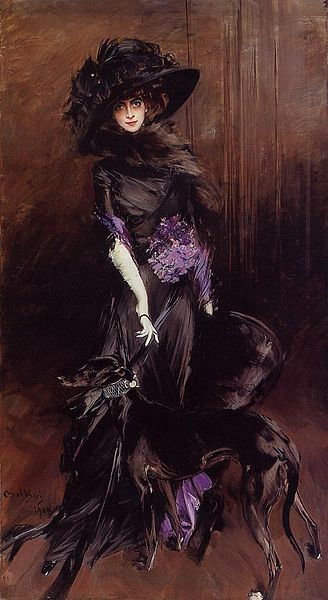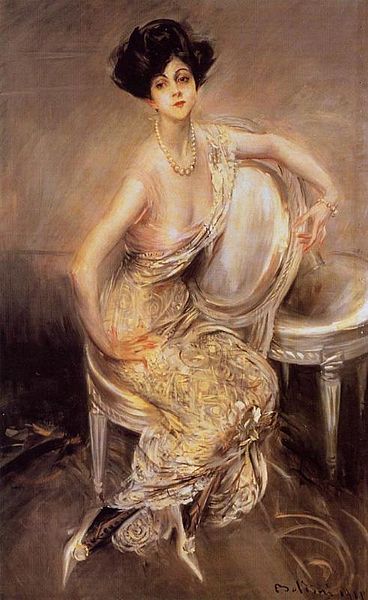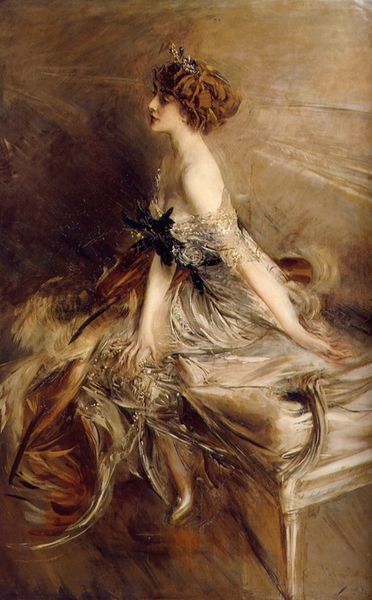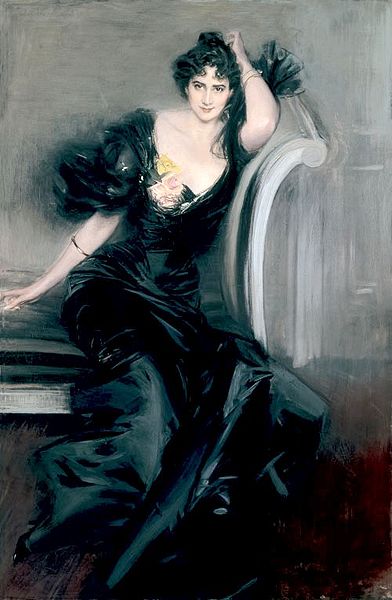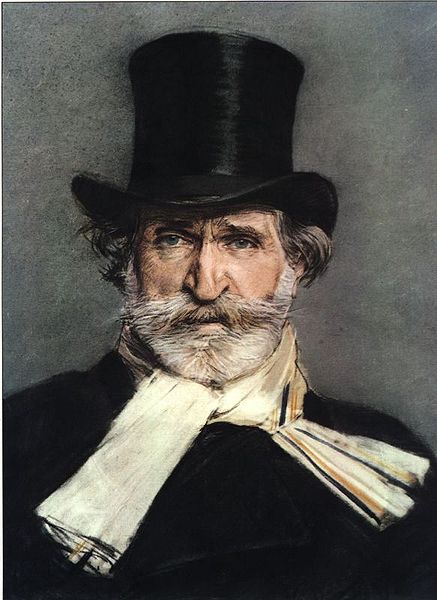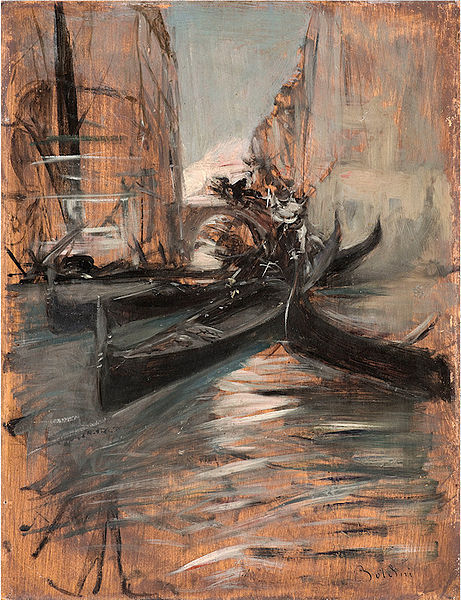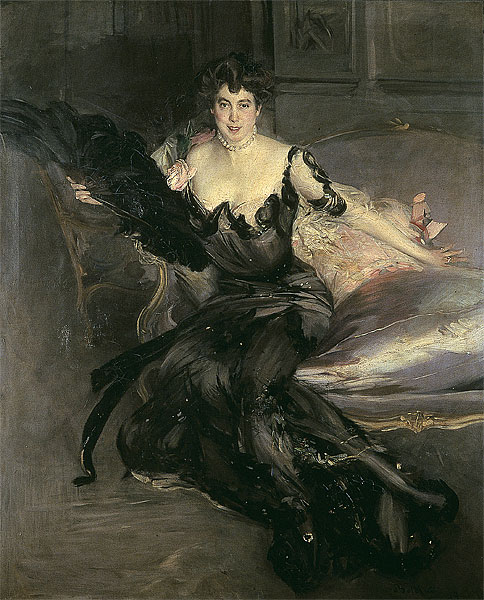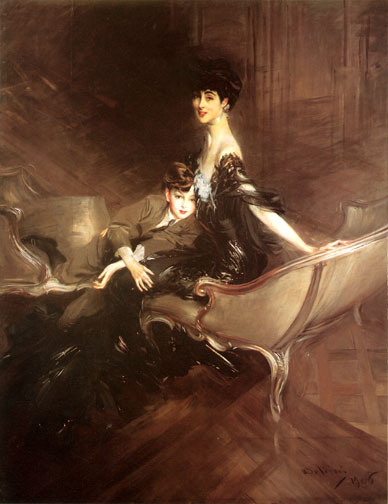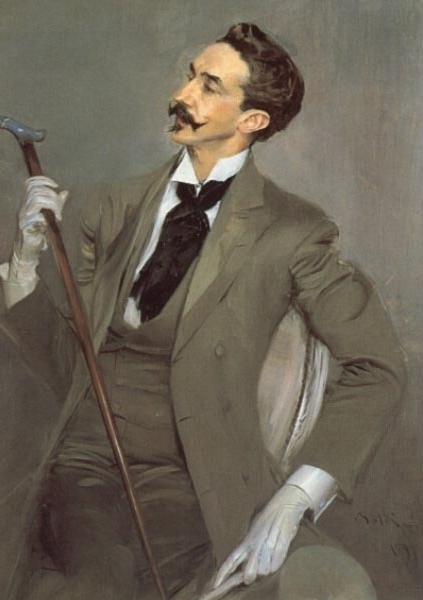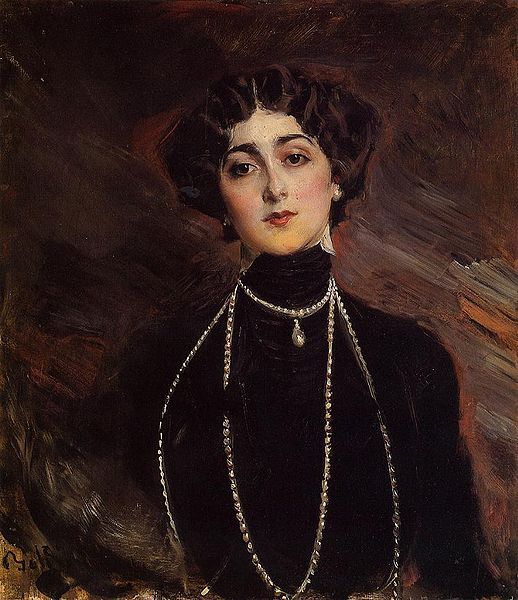<Back to Index>
- Physician Johann Gaspar Spurzheim, 1776
- Painter Giovanni Boldini, 1842
- Président de la République Française Émile François Loubet, 1838
PAGE SPONSOR
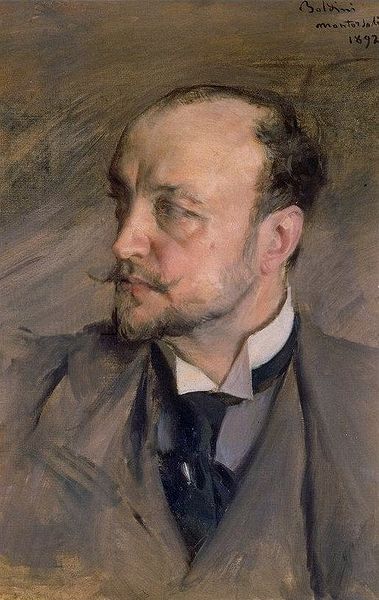
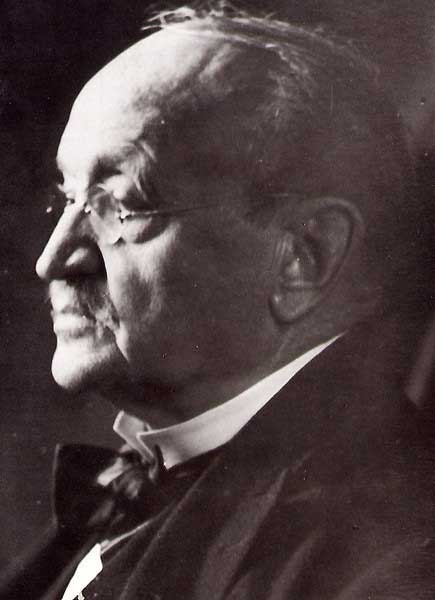
Giovanni Boldini (31 December 1842 – 11 July 1931) was an Italian genre and portrait painter. According to a 1933 article in Time magazine, he was known as the "Master of Swish" because of his flowing style of painting.
Boldini was born in Ferrara, the son of a painter of religious subjects, and went to Florence in 1862 to study painting, meeting there the realist painters known as the Macchiaioli. Their influence is seen in Boldini's landscapes which show his spontaneous response to nature, although it is for his portraits that he became best known.
Boldini attained great success in London as a portraitist. From 1872 he lived in Paris, where he became a friend of Edgar Degas. He also became the most fashionable portrait painter in Paris in the late 19th century, with a dashing style of painting which shows some Impressionist influence but which most closely resembles the work of his contemporaries John Singer Sargent and Paul Helleu. He was nominated commissioner of the Italian section of the Paris Exposition in 1889, and received the Légion d'honneur for this appointment.
Boldini died in Paris in 1931.
A Boldini portrait of his former muse Marthe de Florian, a French actress, was discovered in a Paris flat in late 2010, hidden away from view on the premises that were unvisited for 70 years. The portrait has never been listed, exhibited or published and the flat belonged to de Florian's granddaughter who went to live in the South of France before the Second World War and never returned.
A love note and a biographical reference to the work painted in 1898, when the actress was 24, cemented its authenticity. At auction the painting sold for €2.1 million, a record for the artist.
Giovanni Boldini is a character in the ballet Franca Florio, regina di Palermo, written in 2007 by the Italian composer Lorenzo Ferrero,
which depicts the story of Donna Franca, a famous Sicilian aristocrat
whose exceptional beauty inspired him and many other artists, musicians, poets and emperors during the Belle Époque.
